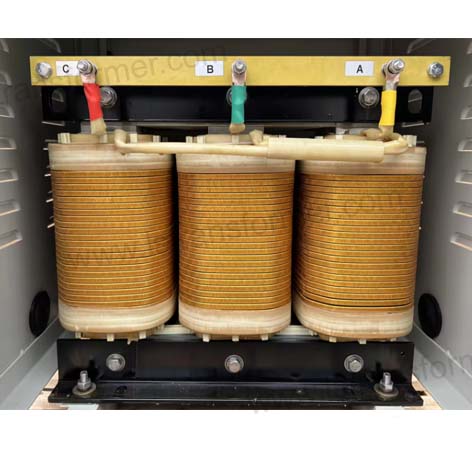Reasons for High Noise Levels in Reactors
Reactor noise can be a significant issue in many electrical systems, particularly those involving high-power applications. There are several reasons why reactors may produce high levels of noise, including: Magnetic field interactions: When reactors are subjected to high levels of electrical current, they can produce strong magnetic fields that interact with other components in the system, leading to audible noise. Core vibration: Reactors consist of a core made up of stacked laminations, which can vibrate at high frequencies when subjected to alternating currents. This vibration can produce audible noise. Resonance: In some cases, reactors may be subject to resonant vibrations, which can produce high levels of noise.
Loose components: Reactors may have loose components, such as windings or clamps, which can vibrate and produce noise.
Environmental factors: Reactors may be subject to environmental factors such as temperature changes, humidity, or vibrations from other equipment, which can contribute to noise levels.
To address these issues, engineers may implement various measures, such as using higher-quality materials, improving the design of the core and winding structures, adding damping materials, or adjusting the physical placement of the reactor within the system. By addressing these factors, engineers can reduce noise levels and improve the overall performance and reliability of electrical systems that use reactors.
It's worth noting that the noise levels produced by reactors can have significant impacts on the performance and reliability of other components in an electrical system. Excessive noise can cause interference with other components and systems, leading to malfunctions or failures. In some cases, noise levels may also pose a safety hazard for personnel working in close proximity to the equipment.
Therefore, it's important for engineers to carefully evaluate the noise characteristics of reactors and other components in an electrical system, and take steps to mitigate any potential issues. This may include testing and analysis of noise levels, optimizing the physical placement and orientation of equipment, and implementing noise reduction measures such as acoustic barriers or vibration damping materials.
By taking a proactive approach to noise management in electrical systems, engineers can help to ensure the safety, reliability, and effectiveness of critical infrastructure and equipment.
LuShan, est. 1975, is a Chinese professional manufacturer specializing in power transformers and reactors for 48 years. Leading products are single-phase transformer, three-phase transformers, DC inductors, AC reactors, filtering reactor, expoxy resin high-voltage transformer and intermediate, high-frequency products. Our transformers and reactors are widely used in 10 application areas: rapid transit, construction machinery, renewable energy, intelligent manufacturing, medical equipment, coal mine explosion prevention , excitation system, vacuum sintering, central air conditioning.
Know more about power transformer :https://www.lstransformer.com/Transformers

 EN
EN
 FR
FR DE
DE ES
ES

